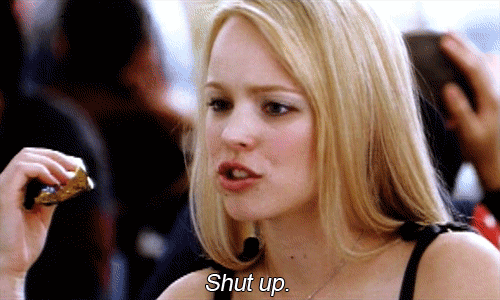Being a fangirl has become an identity and hobby for many girls both young and old. My own journey as a fangirl started early, around the time when I was 12-13 and writing fanfiction about my favorite Disney Channel characters. I didn't realize I was a fangirl at the time and was partially ashamed of what I was doing because it was seen as "obsessive."
I had little obsessions here and there since then, but I never fully embraced my status as a fangirl until 2013 when I started binge-watching the popular TV series "Supernatural," completely falling in love with the characters, plot, and humor that came with it. Since then, I've fallen in love with – and fangirled over – "Doctor Who," "Daredevil," the "Captain America" movies, and more. I wrote fanfiction, obsessed over fan videos and spent more money on merchandise than one probably should. It is an amazing hobby, and it has helped me meet a ton of people who I would have never interacted with otherwise.
Unfortunately, not everybody sees fandoms the same way I do. Fangirls are often seen as emotional, shallow and unintelligent; more burdens to their favorite mediums than helpful. Ever since I started admitting I was a fangirl, I've learned that while sports fans can be accepted while acting the same as fangirls, fangirls are attacked and have to prove themselves more than fans of other forms of entertainment. Here's a short list of ridiculous and sexist things that I've been told as a fangirl.
"Fangirling is a ridiculous hobby."
There are many different reasons why people join fandoms. Some people have free time and would prefer to watch a TV show/listen to their favorite band. Others, like myself, fall in love with something and just fall into the fandom life. For some people, it's a coping mechanism to distract people from the struggles of their day-to-day life, watching something they enjoy and discussing it with others. When it comes to boy bands, this is actually a legitimate psychological way to deal with growing romantic and sexual feelings. The "Supernatural" fandom showed the power of groups by helping each other deal with mental illnesses after Jared Padalecki's "Always Keep Fighting" campaign. Fangirling is just as valid as any other hobby, and so long as it doesn't take over one's life, it's perfectly healthy.
"Fangirls are just stupid teenage girls who live in a fantasy land and can't handle themselves."
When you think "fandom," what do you think of? If you're like a lot of people, you think of screaming girls, often from ages 10-12, following their favorite band members in their dressing rooms and annoying everyone around them. While I have been known to squeal too loudly when I see a "Doctor Who" cosplay, fandoms are far different than what people assume. There are people making fanart, others discussing fan theories on social media, some people writing fanfiction and a lot of group discussions on what they love. Because this is a group of (often) females, the way that they express their love is seen as annoying and vapid. Don't believe me? Look at sports fans. They get together to watch games, play fantasy leagues that play off like fanfiction and talk just as much about sports as fangirls talk about what they love. The only difference? One is a real spectator event and the other is a musical artist/movie/TV show.
"Fangirls contribute nothing to their favorite show/band/movie."
Fangirls are economic powerhouses. We spend hundreds of dollars on merchandise and conventions and often promote a show via social media. For example, the "Supernatural" fandom pushed forward a show that didn't have high ratings until the middle of its run. This idea that fangirls are absolutely nothing erases a very valid hobby and denies the well-documented power of fandoms.
"You're not a real fan unless you can name every actor/band member/comic book character."
How many of you have seen a girl wearing a "Nirvana" shirt, or seen a "Marvel" shirt at Wal-Mart and thought "That's not a real fan; that's a girl who wants to impress her boyfriend or her friends." We often expect female fans to prove themselves as fans because we automatically assume that they don't know enough or are smart enough to like stuff on their own. Meanwhile, we see a man wearing a "Marvel" or a "Nirvana" shirt and their validity as a fan isn't questioned – as it shouldn't be. This arbitrary list of things a "real" fan has to do or know to gain approval just pushes people away from fandoms and makes being a fan a competition as opposed to something fun.
Fangirls get a bad rep. While sometimes fandoms can go too far, fangirl hate is mostly harmful and shames (female) fans. I love fandoms, and besides the occasional five hour "Daredevil" marathon, I'm just like all of you. So, before you judge a cosplayer or a fangirl on Twitter, remember they're just like you. Just with a different hobby.





















